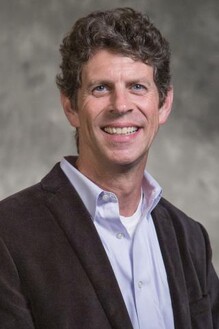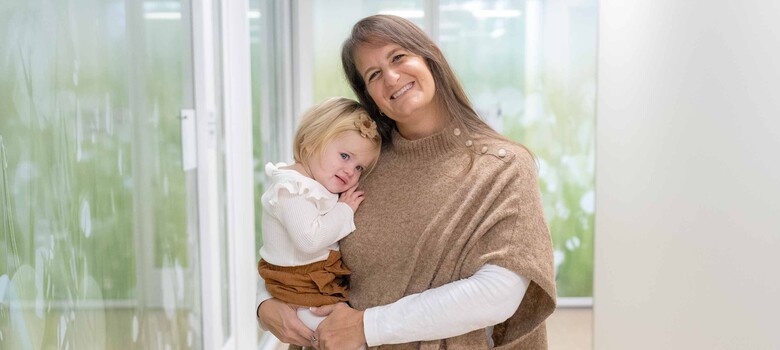Support Empowers Young Adult After Cancer

Hope Reynolds with Geoffrey Vaughn, medical-family therapist, in the Bernstein Family Garden at Duke Cancer Center Durham.
When Hope Reynolds was diagnosed with stage 3 breast cancer at the age of 21, she felt like her body had betrayed her. She had no family history of cancer. No lifestyle risks. She'd kept in excellent shape swimming for a varsity team at a small college in Michigan. How could this be happening?
After her cancer was successfully treated, Reynolds continued to worry that something else might go wrong with her health. “Anytime I felt a little ache or pain, it was hard not to think that it could be really serious. This led to some pretty significant health anxiety,” she said. Her medical oncologist, Kelly Westbrook, MD, urged her to try the support services offered through Duke Cancer Institute’s Teen and Young Adult Oncology program.
A Safe Space to Process Her Fears
The Teen and Adult Cancer Support program became a cornerstone of Reynolds’ mental health recovery. She worked with Geoffrey Vaughn, MA, LMFT, a medical family therapist, to develop coping strategies to manage her constant worry about her health.
Mostly, Vaughn offered a safe space for Reynolds to process her fears. Over time, he helped her realize that health anxiety is a normal experience for cancer survivors. “That was super validating, and what I needed to hear to move forward with my life,” she said.
“I needed that support to figure out what life looks like after my cancer diagnosis. I think for anyone diagnosed with cancer, there is such an emphasis on getting through treatment that when you get to survivorship, it can be really difficult to figure out what life looks like after a cancer diagnosis. I was struggling to find my new normal.”
Thriving Personally and Professionally
Today, Reynolds has completed a doctoral program in physical therapy, and is now halfway through a residency program in acute care. The success of her work with Vaughn inspired her to become a passionate advocate for therapy for oncology patients, and publish an article about it in The Journal of the American Physical Therapy Association.
“It’s been life-changing, honestly,” she said. “Being able to access support cost-free made such a difference, especially when the therapist is trained in cancer survivorship.”



